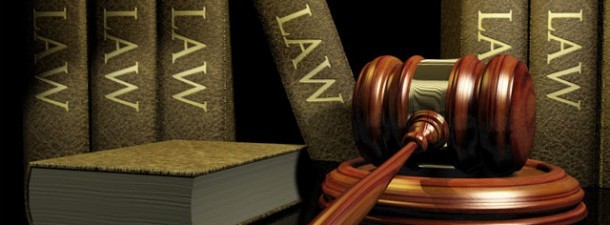Many moons ago I directed a conference on government regulation, out of which the book edited by me and the late M. Bruce Johnson, Rights and Regulation (Ballinger, 1983) was created. In this book some of those who supported government regulation–and most mainstream contributors did so–maintained that being opposed to government regulations is like being opposed to laws. And since laws are necessary for a just society, the inference was drawn that so are government regulations.
The logic is not impeccable but there is some plausibility to the argument until one considers just how different laws and government regulations really are.
The major difference is that most laws, especially those that comprise the criminal system, are prohibitions, bans on certain actions such as murder, robbery, assault, kidnapping and so forth. These are forbidden because they amount to the violation of people’s rights, intruding upon them and their realm, as when one trespasses on their private property. Government regulations are something else entirely.
When the government regulates our conduct, it sets certain standards for how the conduct must be carried out. Government regulations do just what they say, regulate — manipulate, regiment, nudge and so forth — mostly conduct that is peaceful, non-invasive, and non-aggressive, although sometimes quite risky. If one is a money manager or investment advisor or auto mechanic or TV repairer, government regulations amount to dictating how one should perform one’s professional responsibilities, how one should do one’s job based on the assumption that government has a superior understanding to which others must be made to conform. This is why regulators usually need to poke into people’s lives, send out inspectors, trap people, etc., because there need be no victims when government regulations are not followed.
One of the essays in Rights and Regulation, by J. C. Smith then of the University of British Columbia, titled “The Process of Adjudication and Regulation, A Comparison,” argued that instead of approaching the concerns that supposedly motivate advocates of government regulation by means of meddling pre-emptively with the conduct of the regulated, the way to handle it is to have a system of tort and similar law that strongly discourages people from any kind of malpractice. This avoids one of the central injustices of government regulation, namely prior restraint.
This legal concept is usually associated with slapping restrictions on those engaged in writing for newspapers before it has been shown that their writing will do violence to innocent people and is considered unjust. Similarly, government regulations impose controls on how people conduct themselves before anyone has been harmed, hurt, imposed upon or the like. Government regulations are, in other words, precautionary and escape the restraint of due process of law.
Because of this, such regulations assume that government regulators are in fact more skilled and have better moral character than the targets of the regulations, an assumption that is entirely unwarranted. Such an assumption belongs in the political era of monarchies in which the members of the royal court were deemed to be anointed, selected by God to care for the realm. Even today it is a relic of this viewpoint, the idea of the police power, that serves as one of the legal justifications of government regulation. The government is viewed as the keeper of the realm–the Nanny, in short, who knows everything better than the members of the citizenry and whose intent is always pure.
Yes, there are arguments against government regulations that are based on how notoriously inept regulators really are, how very often they are in bed with the very people whom they are supposed to regulate, and yet other features of regulations that make them fail throughout the system. But the most important objection, as far as I have been able to discern, is that government regulations assume that government is a superhuman institution and that when things are risky or could go wrong, let’s just call upon the regulators and it’s all going to be fine. Well, that’s total bunk.
There is nothing in principle wrong with a society of law and order provided no preemptive laws are deployed, ones that prejudicially assume that those carrying on with their occupations, jobs, careers and so forth in the marketplace just are not decent and skilled enough people and may not be left to their own resources to do their work. Yes, sometimes they are careless and too ambitious and produce some havoc. But certainly far less so than do agents of governments–any familiarity with human political history ought to make this very clear indeed. And when they do actually misbehave, the law should come down on them good and hard, but not beforehand.





